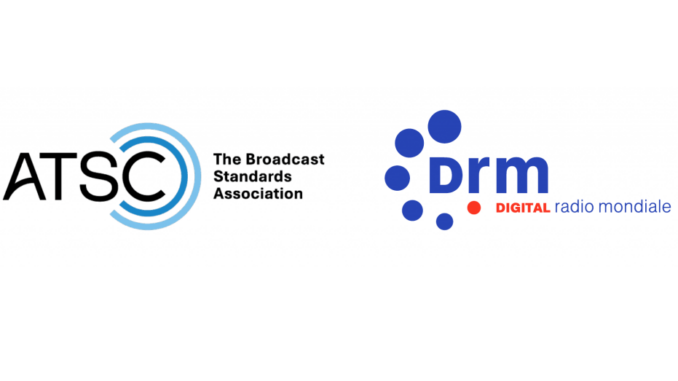
The DRM Consortium and ATSC, the Broadcast Standards Association, have just signed a mutual institutional partnership agreement. This gives each of the two international, not-for-profit organisations equal access and rights in the DRM Consortium and ATSC organisation, respectively. This is also expected to open the door to close collaboration between the respective standard bodies, the ultimate goal being the adoption of both standards worldwide for the benefit of broadcasters and listeners alike.
The over 100 members of the DRM Consortium are promoting the global adoption of Digital Radio Mondiale™ (DRM), the only universal, openly standardised digital radio system for all broadcasting frequencies and coverage needs. The standard is being demonstrated, ready to launch or being used in countries around the globe from India, China, Indonesia to South Africa, European countries etc.
As recently presented in Indonesia, India and in Turkey (at the ABU General Assembly) DRM offers innovative solutions to deliver better audio and data programmes with multimedia enhancements. DRM enables the delivery of information, entertainment, education and emergency warning while saving spectrum and energy. This has been demonstrated with the ultra-efficient DRM-Multichannel signals broadcast from a single wide-band transmitter in the VHF bands.
ATSC, the Broadcast Standards Association, aims to develop voluntary standards and recommend practices for digital terrestrial broadcasting. As a new force to be reckoned with in the broadcasting industry, ATSC guides the seamless integration of broadcast and telecom standards to drive the industry forward. As recently mentioned by the ATSC President: “ATSC 3.0 broadcasts are being tested in India, Canada and Mexico, and Brazil has identified key ingredients of the ATSC 3.0 system for their next-generation system, joining South Korea, Jamaica, Trinidad and Tobago, and the U.S., which are on-air or planning near-term launches.”
“We are excited to formalize our collaboration with the Digital Radio Mondiale Consortium through this reciprocal institutional membership agreement. This partnership not only enhances our commitment to advancing broadcasting technologies but also paves the way for ongoing efforts to carry Digital Radio Mondiale services over ATSC 3.0 transmissions, expanding access to high-quality digital radio and expanding opportunities for ATSC 3.0 broadcasters. This is especially important in countries such as India, where Digital Radio Mondiale has an established base of users, and also other locations that are studying options such as Brazil and Indonesia,” said Madeleine Noland, President, ATSC.
The DRM Chairman, Ruxandra Obreja, welcomed the signing of the DRM-ATSC institutional membership agreement saying that: “There are clear synergies between our two not-for-profit organisations, as well as geographical overlaps in our activities since our innovative solutions could be beneficial in giving a 21st century digital future to media in developed and developing countries. Getting blended, robust end-to-end and ready-to-use solutions is an aim DRM and ATSC share fully. This is why I consider this institutional membership agreement as very significant for all our members. I am very excited about our next joint initiatives.”
